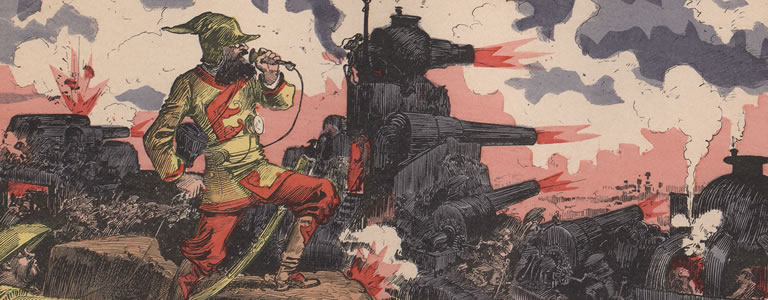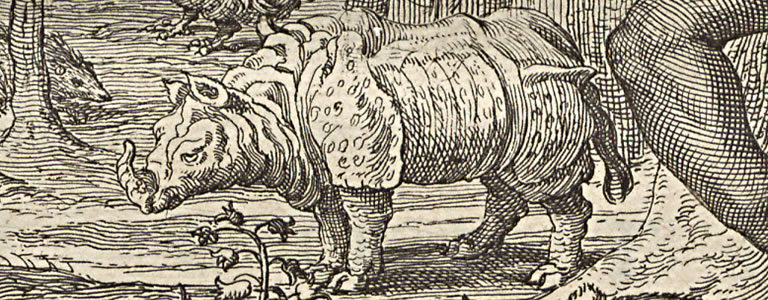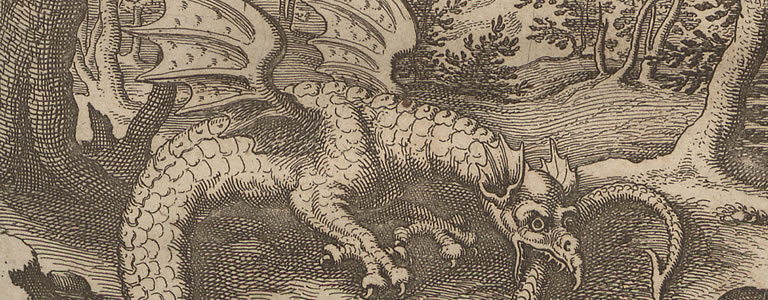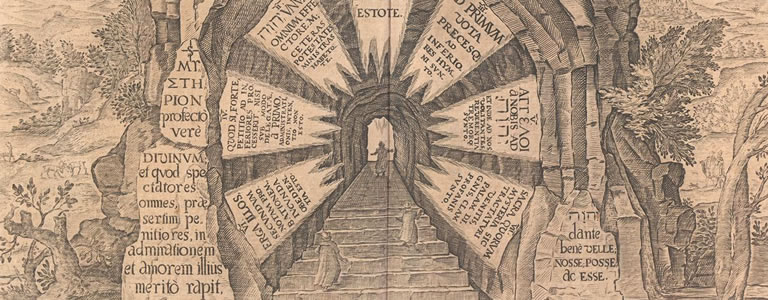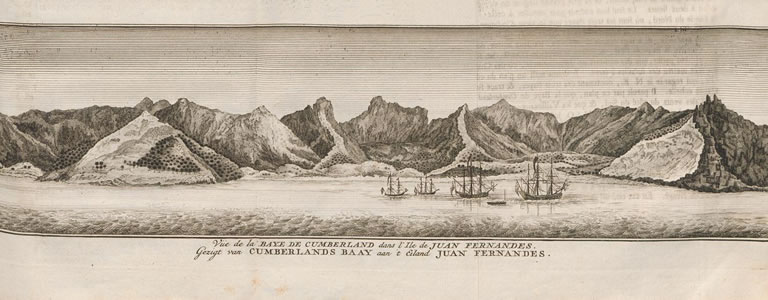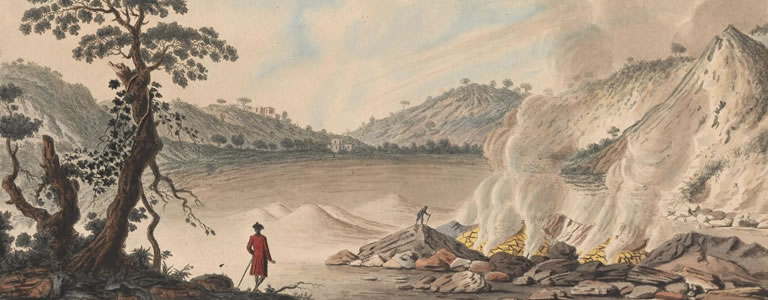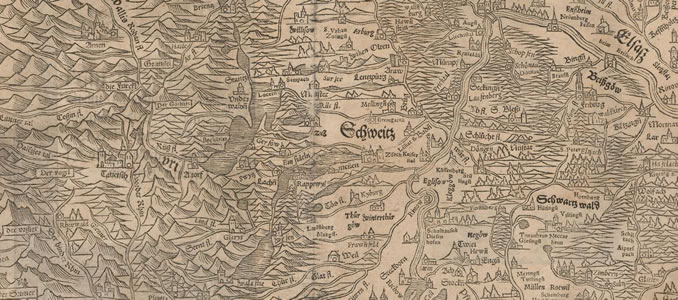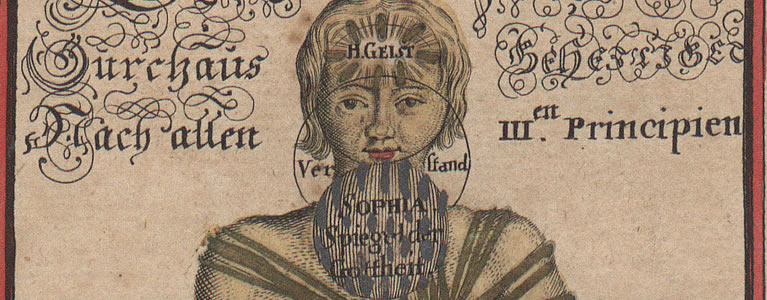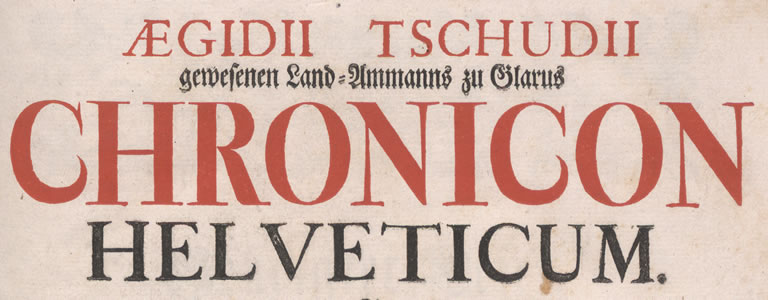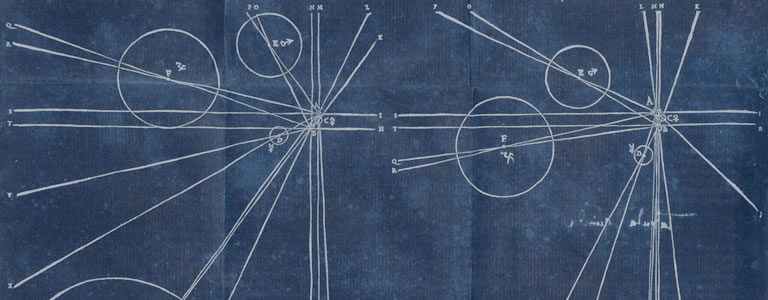Albert Robida (1848-1926) was a French writer, draughtsman, painter, caricaturist and journalist. He began his career as an illustrator for popular Parisian magazines such as Chronique illustrée and Le Pollichinelle. He became famous for his illustrations of luxury editions of literary works by François Rabelais, Charles Perrault, Honoré de Balzac and others. From 1879 onwards, Robida published a
 Roland Lüthi
Roland Lüthi
Willem Piso: De Indiae utriusque re naturali et medica (Amsterdam, 1658)
Willem Piso (1611-1678) served from 1636 to 1644 as a doctor in the Dutch colony in Brazil. As a pioneer of tropical medicine and pharmacology, he studied herbal medicine of the indigenous peoples and supported their health practices. In the jungle, he set out in search of medicinal plants and thus gained the reputation of being the first European to gain an understanding of the indigenous
Musaeum hermeticum (Frankfurt, 1678)
The Musaeum hermeticum reformatum et amplificatum was published 1678 in Latin in Frankfurt. As the title suggests, this is the revised version of an earlier edition of Lucas Jennis, which was published in 1625 and is very rare. The Musaeum tries to assemble in a
The stuff crime novels are made of: Heinrich Khunrath’s Amphitheatrum Sapientiae Aeternae (Hanau, 1609)
By their very nature, texts on alchemy are largely inaccessible, difficult to comprehend and often have an obscure edition history – and none more so than Heinrich Kunrath’s Amphitheatrum Sapientiae Aeternae. As Umberto Eco writes, while the posthumous Hanau edition of this work was
Island with literary potential
The small island Isla Robinson Crusoe or formerly Mas a Tierra or Juan Fernandez is located in the Pacific Ocean, about 600 kilometers west of the Chilean mainland. It is part of an archipelago which was discovered in 1574 by the Spanish seafarer Juan Fernandez and later named after
Glow with the Flow: William Hamilton’s Campi Phlegraei (Naples, 1776-1779)
As a British diplomat at the court of the Kingdom of Naples, Sir William Hamilton (1730-1803) had an ideal location to study the volcanoes of the region. Several times he climbed Mount Vesuvius and witnessed the violent and dangerous outbreaks of the time. To capture his observations of
Sebastian Münster, Cosmographia (Basel, 1544)
After 18 years in the making, Sebastian Münster (1488-1552), the German theologian and humanist, finally published Cosmographia in 1544, a monumental Renaissance work. He drew upon a wide variety of sources: on the one hand, Greek and Latin authors such as Herodotus,
Johann Georg Gichtel: Von den drei Prinzipien und Welten im Menschen (S.I., 1736)
Der deutsche Advokat, Mystiker und Spiritualist Johann Georg Gichtel (1638-1710) ist in erster Linie als Herausgeber der Werke Jakob Böhmes bekannt. Seine eigene Position ging dann aber weit über diejenige Böhmes hinaus, indem sich Gichtel der “völligen Ertödtung des Fleisches” und des Kampfs gegen Satan verschrieb.
Aegidius Tschudi, Chronicon Helveticum (Basel, 1734-1736)
Many people associate Switzerland with William Tell, the country’s national hero. The world-famous legend, which was first documented in the 16th century, enjoyed particular popularity in the 19th century.
Johannes Kepler: Mysterium Cosmographicum (Tübingen, 1596)
German natural philosopher, theologist, mathematician, astronomer, astrologist and optician Johannes Kepler (1571-1630) is best known for his three laws of planetary motion.
